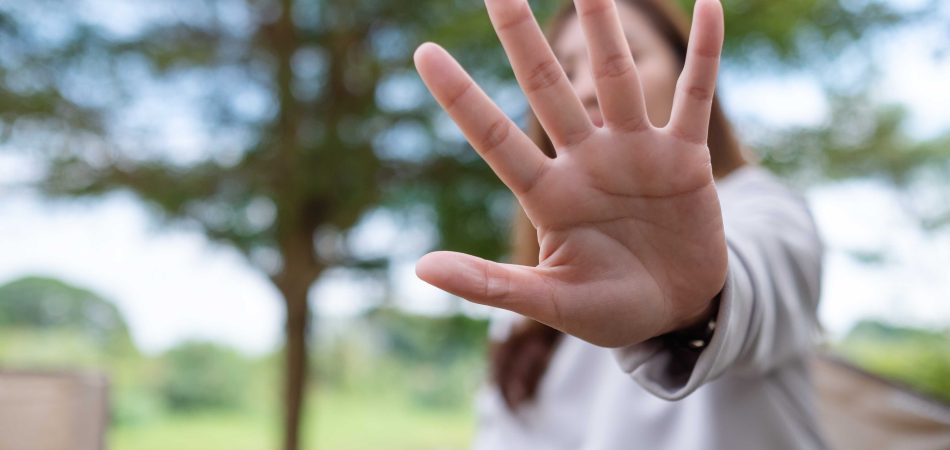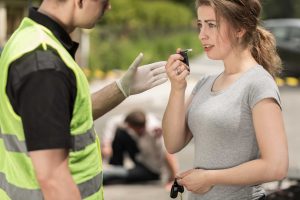
Disclaimer: This article talks about Louisiana’s breathalyzer laws in general and is not legal advice. Every DUI or DWI case is different and needs its own legal analysis. If you are being charged with a DUI or have questions about your case, you should talk to a licensed Louisiana DUI defense lawyer.
You are driving home after dinner with friends. Blue lights flash in your rearview mirror. The officer asks you to step out of the vehicle and blow into a small device: a breathalyzer. Your heart races. Your mind spins.
Can I refuse this test? Should I refuse it?
These questions race through thousands of Louisiana drivers’ minds every year. The answer is not simple, and the consequences of your decision could impact your license, your job, and your freedom.
A breathalyzer is a device that estimates your blood alcohol concentration (BAC) by analyzing a sample of your breath.
Law enforcement officers use these portable machines during traffic stops to determine if drivers are intoxicated.
In Louisiana, you are considered legally impaired if your BAC is:
Better version: In Louisiana, you are considered legally impaired if your BAC is:
Officers typically request a breathalyzer test when they observe signs of impairment such as slurred speech, bloodshot eyes, the smell of alcohol, or failed field sobriety tests.
Louisiana’s implied consent law (Louisiana Revised Statutes RS 32:661) states that by operating a vehicle on Louisiana roads, you have automatically consented to submit to chemical tests (breath, blood, or urine) if a law enforcement officer has reasonable grounds to believe you are driving while intoxicated.

Most drivers, most of the time: Yes, you can refuse, but with severe consequences.
You CANNOT refuse if:
In these situations, refusal itself is a criminal offense with mandatory penalties.
Louisiana law does not allow police to physically force you to blow into a breathalyzer, and they cannot get a warrant to make you blow. You have the physical ability to say “no.”
But officers can obtain a search warrant for a blood test. With a warrant, medical personnel can draw your blood, by force if necessary.
So refusing a breathalyzer doesn’t mean refusing all testing. It just shifts the method from breath to blood.
Yes, you physically can refuse a breathalyzer in most situations. But “can” does not mean “should.”
When you refuse a breathalyzer in Louisiana, the penalties kick in immediately under Title 32 (Louisiana’s traffic and vehicle laws).
In cases involving fatalities or serious bodily injury, first or second refusal suspensions are imposed WITHOUT eligibility for a hardship license.
Financial Penalties:
Immediate Actions by Officer:
These are administrative penalties. Meaning they happen through the Louisiana Office of Motor Vehicles (OMV), separate from any criminal court proceedings. However, if you refuse after having two prior refusals, you will face both administrative and criminal penalties.
Critical Deadlines:
Refusing the breathalyzer doesn’t stop the criminal DWI case from moving forward.
Under Title 14 (Louisiana’s criminal code), prosecutors can still charge you with DWI based on other evidence:
Additionally, your refusal itself can be introduced as evidence in criminal court. Prosecutors will argue, “If they weren’t drunk, why didn’t they just take the test?”
After two prior refusals, Louisiana law says you “may not refuse” to submit to testing. If you refuse anyway, it becomes a criminal offense.
Prosecutors can and do use your refusal as evidence in DWI trials, arguing that you refused testing to hide intoxication.
While this does not automatically result in harsher criminal sentencing by statute, your refusal:
By your third refusal, you are facing:
The penalties do not escalate to three years, but adding criminal charges to the mix makes third refusals substantially worse than second refusals.

They think:
These misconceptions lead to decisions that make bad situations worse.
Some drivers refuse because they know they have been drinking and fear that a failed breathalyzer will seal their fate. The logic makes sense on the surface: Do not give them the evidence they need.
Refusal does not prevent DUI charges. It just changes the nature of the evidence prosecutors will use. And it adds the administrative license suspension on top of whatever criminal penalties you might face.
Legitimate reasons do exist.
Some people have:
If you have a genuine medical condition, communicate it clearly to the officer. They may offer alternative testing methods like blood or urine tests.
A Louisiana DUI attorney can challenge your case even after you have refused the breathalyzer by:
If you refuse, officers will pursue blood or urine testing instead. Under Louisiana’s implied consent law, you have already agreed to all chemical tests (not just breathalyzers).
Refusing blood or urine tests triggers the same penalties as refusing a breathalyzer. One-year suspension for your first refusal.
Some drivers refuse roadside breathalyzers, hoping to buy time at the station, letting their BAC drop naturally. Prosecutors use retrograde extrapolation, a mathematical formula estimating your BAC at the time of driving, not at the time of the testing.
Stay calm and respectful. Anything you say or do will be recorded and can be used in court. Arguing, becoming combative, or showing attitude will only hurt your case.
Yes, but the clock starts ticking immediately.
From the moment of your arrest, you have exactly 30 days to request an administrative hearing with the Louisiana Office of Motor Vehicles (OMV).
Exception: If you were hospitalized, incarcerated, or had another acceptable reason preventing your request, you may have up to 90 days. But you will need documentation proving why you could not act within 30 days.
Submit a written request to:
If you’ve been arrested for DWI in Louisiana—whether you refused the breathalyzer or not—the clock is already ticking on your license and your case.
Chad Ikerd has defended over 1,000 clients facing criminal charges across Louisiana. With 14+ years of experience and deep knowledge of Louisiana’s DUI laws, he knows how to challenge evidence, protect your rights, and fight for the best possible outcome.
Chad focuses on OWI defense and is a member of OWI defense lawyer organizations, including the National College of DUI Defense (NCDD) attorneys, which offers special training in OWI and forensic defense strategy.
Do not wait. Your administrative hearing deadline is just 30 days away, and evidence in your favor can disappear quickly.
Call us today at the Ikerd Law Firm for a consultation.
Past results do not guarantee future outcomes. This article is for informational purposes only and does not constitute legal advice or create an attorney-client relationship.